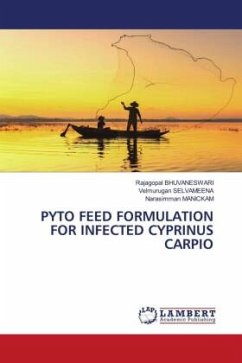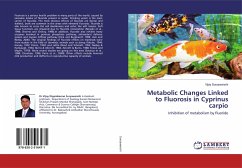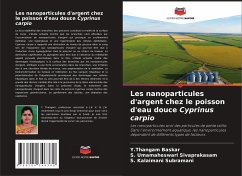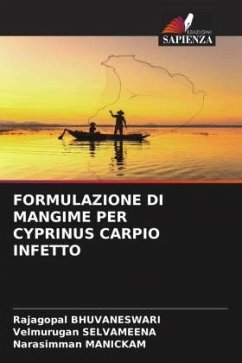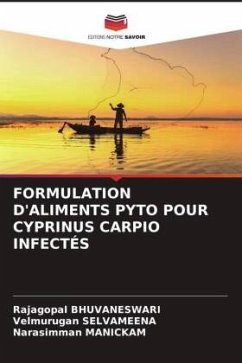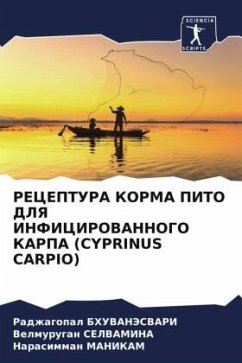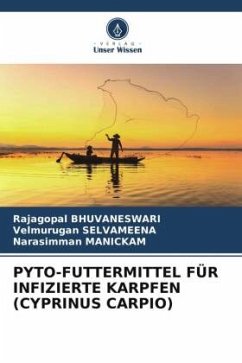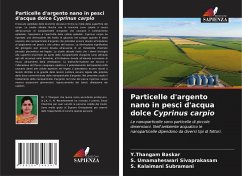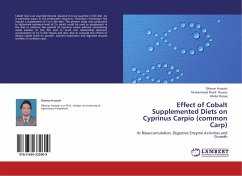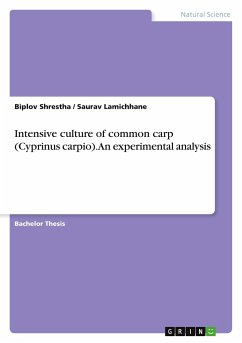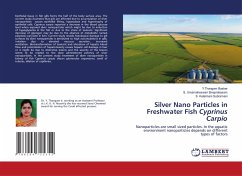
Silver Nano Particles in Freshwater Fish Cyprinus Carpio
Nanoparticles are small sized particles. In the aquatic environment nanoparticles depends on different types of factors
Versandkostenfrei!
Versandfertig in 6-10 Tagen
27,99 €
inkl. MwSt.

PAYBACK Punkte
14 °P sammeln!
Epithelial tissue in fish gills forms the half of the body surface area. The current study illustrates that gills are affected due to accumulation of silver nanoparticles causes epithelial lifting, hyperplasia and hypertrophy of epithelial cells. Cyprinus carpio reported a decrease in the blood glucose level when exposed silver nanoparticles which might be due to induction of hypoglycemia in the fish or due to the stress of toxicant. Significant decrease of glycogen may be due to the absence of metabolite named plasmatic pyruvate in liver. Current study reveals histological damage to gill surf...
Epithelial tissue in fish gills forms the half of the body surface area. The current study illustrates that gills are affected due to accumulation of silver nanoparticles causes epithelial lifting, hyperplasia and hypertrophy of epithelial cells. Cyprinus carpio reported a decrease in the blood glucose level when exposed silver nanoparticles which might be due to induction of hypoglycemia in the fish or due to the stress of toxicant. Significant decrease of glycogen may be due to the absence of metabolite named plasmatic pyruvate in liver. Current study reveals histological damage to gill surfaces by silver nanoparticles is attributed to high accumulations in gills, irritation due to elevated mucous secretion, increased ventilation. Biotransformation of toxicant and alteration of hepatic blood flow and potentiation of hepatotoxicity causes hepatic cell damage in liver or it might be due to distinctive lesions and the severity of the lesions seems to be related to the dose administered potency of silver nanoparticles. In the present study treatment of silver nanoparticles in kidney of fish Cyprinus carpio shows glomerular expansions, swell of tubules, dilation of capillaries.



